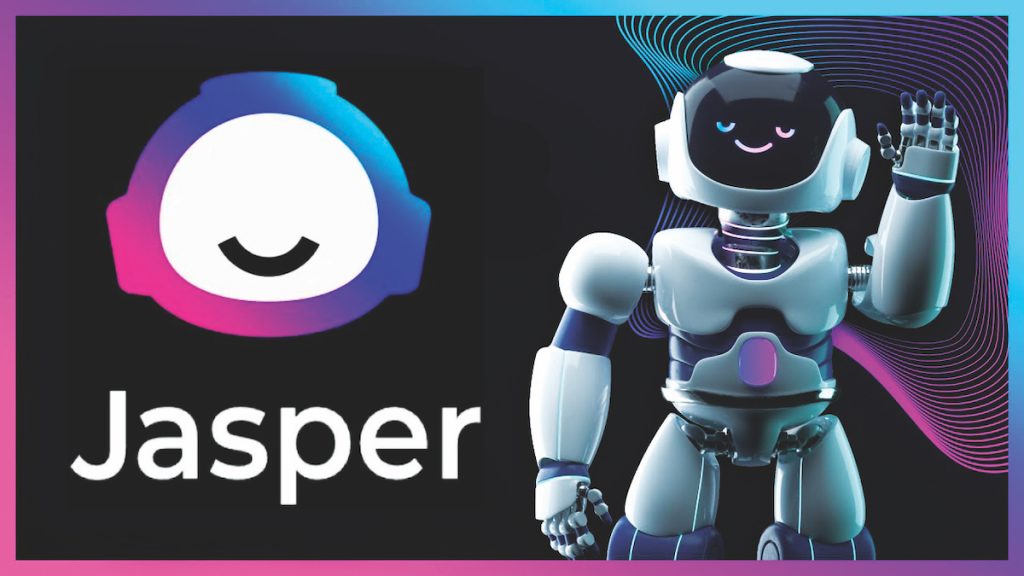AI and Marketing
What is AI Marketing?
In recent years, AI has emerged as a crucial component of marketing. It makes use of data analysis, insight generation, and marketing task automation, which boosts productivity, increases return on investment and improves customer experiences.
This manual’s goal is to clarify the value of AI in marketing, how it operates, and what you need to know to get started.
The Value of AI for Marketing
AI impacts marketing by allowing businesses to use data for decision-making, simplify marketing tasks, and create personalized experiences for consumers. AI solutions can automate routine work, freeing up marketers to focus on crucial goals.
Predictive analytics and targeted marketing are enhanced by AI, improving corporate ROI. Additionally, AI monitors consumer behavior, spots buying patterns, and boosts marketing effectiveness.
Understanding AI Marketing
AI in marketing refers to the use of data models, mathematics, and algorithms to generate insights that marketers can use to guide their decisions. AI can analyze customer data, study market trends, and make predictions about consumer behavior. This information can then be used to create personalized marketing campaigns that engage customers and drive sales.

AI technologies can automate routine tasks such as customer engagement, content creation, and analysis of marketing data, freeing up time for marketers to focus on more strategic initiatives.
AI holds exceptional future opportunities in the field of digital marketing. It enables predictive analytics, better experiences for customers, and targeted marketing, all of which will offer businesses higher ROIs
In conclusion, AI is revolutionizing the marketing industry by enabling businesses to make data-driven decisions, automate routine tasks, and create personalized customer experiences. This guide provides an overview of the importance of AI in marketing and what you need to know to get started.
AI Marketing definition:
Using AI technology to automate and improve marketing processes, AI marketing helps businesses analyze data and boost effectiveness. commonly used in fast-paced digital marketing.
Different AI in Marketing
Predictive analytics, automated email marketing, chatbots, and automated consumer segmentation are just a few examples of the numerous types of AI used in marketing. Other AI marketing solutions can enhance content generation as well as automate things like scheduling work and finishing tedious jobs.
Advantages of AI Marketing
AI marketing benefits from the capacity to interpret data in real time, enhancing the effectiveness and output of marketing activities. AI enables 24/7 marketing, allowing marketers to meet customer needs and company goals without growing the team. Utilizing large amounts of data, AI enhances marketing efforts and motivates customers to take action.
Developing Your AI Marketing Strategy
Identifying Your Target Market
Identifying your target market is key to creating an effective AI marketing plan. To understand your audience, research their demographics, behavior patterns, and buying habits using tools like surveys, focus groups, and analytics. This information will help you create a marketing strategy that resonates with them and drives conversions.
Determining Your Marketing Goals
After understanding your target market, set marketing goals aligned with your business objectives. Make the goals specific, measurable, attainable, relevant, and time-bound. Examples of common marketing goals are increasing brand awareness, website traffic, lead generation, and sales growth.
Choosing the Right AI Tools for Your Business
Various AI tools, such as chatbots, personalization software, and predictive analytics, can help businesses reach their marketing goals. When selecting AI tools, consider factors such as budget, tool complexity, and compatibility with your current technology.
Creating Your AI Marketing Plan
Make an AI marketing strategy with your target audience and marketing goals in mind. It is necessary to provide a thorough review of your plan’s strategy, procedures, and KPIs. To track success and take into account market developments, the strategy should be reviewed and revised as necessary.
Include AI in your marketing strategy to make the most of it. To do this, you must identify your target audience, set marketing goals, choose the best AI technology, and create a complete plan. This will help you reach out to your target audience, accomplish your marketing goals, and encourage business growth.
Implementing AI Marketing
Integrating AI into Your Existing Marketing Plan:
Artificial Intelligence (AI) is becoming a critical part of effective marketing operations. It helps marketing teams make sense of data in real-time, improving the efficiency and results of marketing operations [1]. To create an AI marketing strategy, it is important to identify your marketing goals and objectives and consider how AI can help you achieve them. You should also research and evaluate different AI technologies that could be useful for your marketing efforts.
A good first step is to look at potential use cases for AI in your marketing and identify problems you believe AI can solve. Before businesses can implement AI as a marketing solution, they need to understand how it makes work faster, easier, and smarter. AI is a collection of machines that respond to stimulation in ways similar to how a human would, making decisions that normally require a human level of expertise.
It is also important to understand your business requirements and decide which strategic pain points can be addressed using AI-based solutions. Review your business and figure out which parts could gain the most from cognitive applications. AI in business can deliver predictive insights.
Training Your Team on AI Marketing:
Training your team on AI marketing is important for successful AI marketing. Don’t fall behind as AI becomes more widespread. Incorporate AI into your digital marketing strategy. AI can improve your team’s judgment and knowledge-creation abilities, making them more effective.
Measuring the Success of Your AI Marketing Efforts:
It’s important to measure the success of your AI marketing initiatives to determine their impact. A 2020 survey of early AI adopters by Deloitte found that three of the top five AI objectives were related to marketing, such as improving current products/services and creating new ones.
To measure the success of your AI marketing efforts, you can use various tools, such as Jasper, to write the best marketing copy on any channel, or Google Analytics Intelligence, to answer your marketing questions.
Another AI tool, Synthesia, can help you make sure every blog reader stays on-site longer and reads more by cataloging the topics you’ve written about and recommending content to visitors based on what they’ve already read on your site.

Best Practices for AI Marketing
Using AI for Customer Segmentation and Personalization:
Artificial intelligence has revolutionized the way businesses approach customer segmentation. AI algorithms can process vast amounts of customer data and identify patterns and trends that are not easily noticeable to the human eye. AI can help companies to analyze data, such as purchasing information, job titles, geography, products purchased, age, and profession, to create customer segments and sort them accordingly. AI-based personalization helps brands to understand their customers more thoroughly, improve engagement, and increase loyalty, and sales. AI algorithms can also capture specialized vocabulary used by customers and combine their views with traditional rating scales to obtain deep insights, leading to more accurate customer segmentation.
Taking Advantage of AI-Powered Chatbots for Customer Service:
AI-powered chatbots have become increasingly popular in customer service as they offer a fast and efficient way to handle customer inquiries. Chatbots can be trained to understand customer queries, anticipate their needs, and respond to them in real time. This can help companies to reduce response times, increase customer satisfaction, and lower costs associated with customer service. AI-powered chatbots can also improve customer service by providing personalized and relevant information to customers, such as product recommendations or personalized promotions.
Using AI to Optimize Your Content Marketing Efforts:
Artificial intelligence has the potential to revolutionize content marketing by making it more efficient and effective. AI can help to determine the best topic for a blog post, gather information about the topic, draft, and edit the post. AI can also track reader engagement with posts and make recommendations for future content based on what is resonating with the audience. By 2027, the AI market is expected to reach $267 billion, as consumers’ need for personalization becomes greater and content marketers adapt to changing behaviors.
Using AI to Enhance Your Social Media Marketing:
AI can help businesses to improve their social media marketing by using smart segmentation to identify their target audience, connecting with customers on their terms, and delivering tailored content to each target audience segment. AI algorithms can analyze social media data to understand customer behavior and preferences, leading to more personalized and effective social media marketing. AI can also help businesses to optimize their social media presence by automating mundane tasks, such as responding to comments and messages, freeing up time for more creative and strategic initiatives.
Successful AI Marketing Examples

AI has proven to be a valuable tool for many companies looking to improve their marketing strategies. Here are some examples of companies that have successfully integrated AI into their marketing efforts:
MasterCard: MasterCard uses AI technology called natural language generation (NLG) to create content at scale. The technology automatically creates narratives from structured datasets and is provided by two major NLG providers: Narrative Science and Automated Insights.
Alibaba: Alibaba is the world’s largest e-commerce platform that sells more than Amazon and eBay combined. The Chinese company uses AI to provide next-level products and services to its customers.
Dominos Pizza: Dominos allows customers to order pizza through Facebook Messenger using just one word or the pizza emoji. The company has updated its AI-powered bot to allow for an improved customer experience.
Cogito: Cogito uses AI to enhance the emotional relationship with customers in sales and customer service calls. The firm uses AI to make interactions more empathetic than humans could do alone.
Drift: Drift uses AI-powered chatbots that pop up to ask queries and promote products. The company’s Drift Assistant automates the updating of email replies, routing of contact information, and lead generation.
These are just a few examples of companies that have successfully integrated AI into their marketing efforts. By leveraging AI, these companies are able to provide improved customer experiences and achieve business goals more efficiently.
Analysis of the Strategies Used:
Mission statement and core values:
A mission statement is a reflection of the organization’s past and present that states its reason for existence and role in society. The core values help shape the organization’s culture and behavior.
Market analysis:
Understanding the industry and competitors is crucial in formulating a strategy. A market analysis helps identify the strengths and weaknesses of a business and understand the changes in the market.
SMART goals and strategic priorities:
SMART goals are specific, measurable, aggressive, realistic, and time-bound aims that organizations pursue to reach their visions and missions. Strategic priorities are the steps that help organizations achieve their SMART goals.
Key performance indicators (KPIs):
KPIs help tracks the progress of the organization toward achieving its goals. They help measure the success of the strategies and identify areas that need improvement.
SWOT analysis:
SWOT analysis is a tool used to identify the strengths, weaknesses, opportunities, and threats of a business. It helps organizations understand their current situation and formulate a strategy accordingly.
Case study analysis:
Case study analysis is a method used to understand a specific scenario or problem. A case study analysis includes introducing the problems and issues found, discussing the theory used in the analysis, presenting the findings, and making any assumptions made during the analysis.
Marketing strategy:
The first step in creating a marketing strategy is identifying the target market. The marketing strategy should align with the business strategy and drive technology decisions.
In conclusion, a blog section analyzing strategies and results achieved can cover various topics such as mission statements and core values, market analysis, SMART goals and strategic priorities, KPIs, SWOT analysis, case study analysis, and marketing strategy.
Final Thoughts on AI Marketing for business and their success
AI marketing has the potential to enhance a business’s marketing strategy by providing valuable insights into customer needs, improving marketing efficacy, and automating marketing processes. AI marketing tools, such as Copywriter Jason AI, Browse AI, and Synthesia AI, can help in these efforts. However, AI success in marketing depends on the organization’s marketing and data analytics capabilities as well as the role of human employees. It is crucial for businesses to understand the capabilities and limitations of AI and make it a priority to use AI to increase marketing efficacy.
In conclusion, AI marketing can play a crucial role in the success of the business by providing valuable insights and automating marketing processes. Businesses should make it a priority to understand the capabilities of AI and integrate it into their marketing process.







